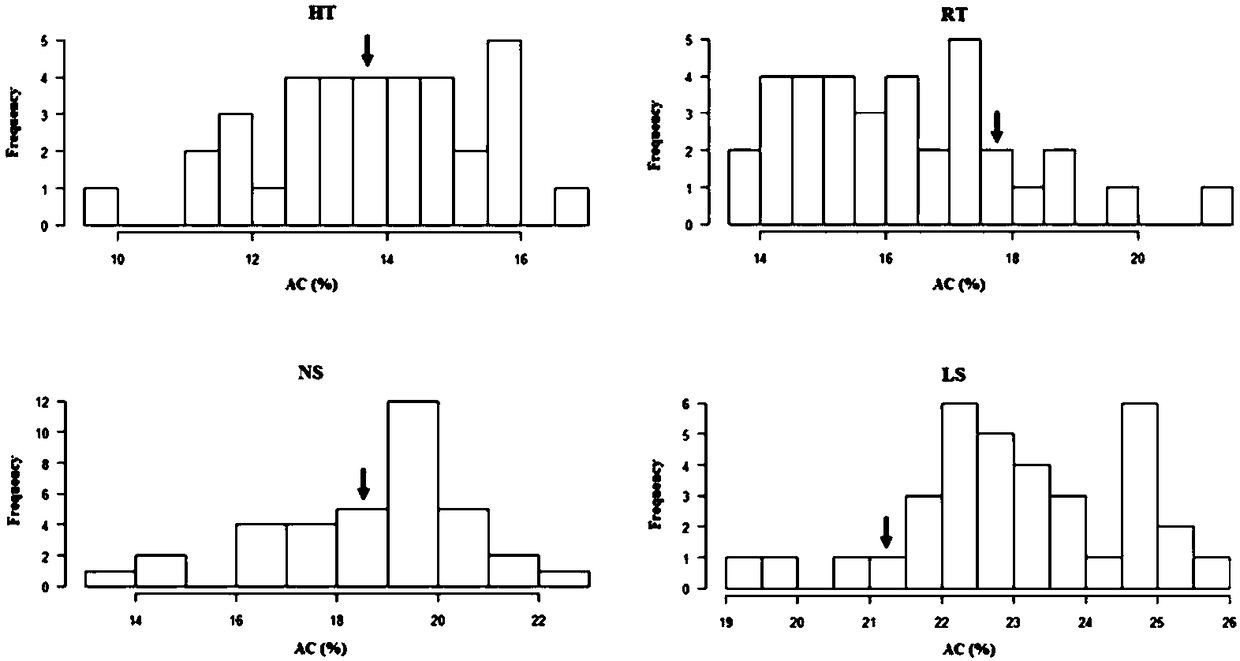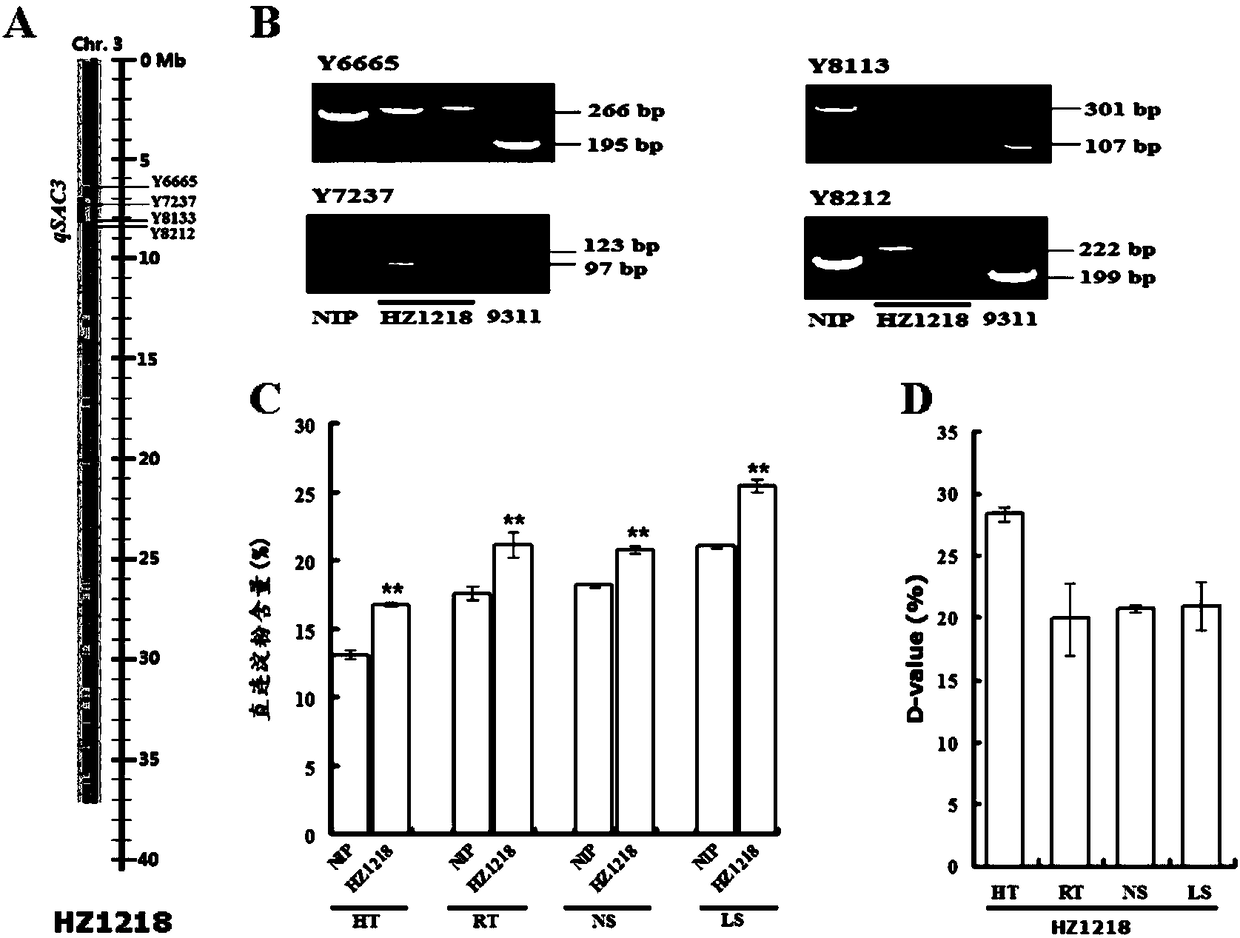Genetic identification and molecular marker-assisted breeding method for rice amylose content QTL site qSAC3
A technology of amylose content and molecular markers, applied in the field of molecular genetics and breeding, can solve the problems of not being able to meet the needs of breeding of high-quality rice varieties, the effect of unfavorable environmental temperature, and few research results
- Summary
- Abstract
- Description
- Claims
- Application Information
AI Technical Summary
Problems solved by technology
Method used
Image
Examples
Embodiment Construction
[0021] The present invention will be further elaborated below in conjunction with the accompanying drawings and specific embodiments.
[0022] Obviously, the present invention is not limited to the above embodiments, and many variations are possible. All deformations that can be directly derived or associated by those skilled in the art from the content disclosed in the present invention should be considered as the protection scope of the present invention.
[0023] The invention identifies the QTL sites that can stably increase rice AC under different environmental temperatures through multi-environmental tests and genetic analysis. Through genetic analysis, the present invention found only one locus qSAC3 with high reliability in the rice genome; through sequence comparison and molecular verification, the present invention also provided 4 molecules with obvious differences in the interval where qSAC3 is located Markers Y6665, Y7237, Y8113 and Y8212 were used in rice molecul...
PUM
 Login to View More
Login to View More Abstract
Description
Claims
Application Information
 Login to View More
Login to View More - R&D
- Intellectual Property
- Life Sciences
- Materials
- Tech Scout
- Unparalleled Data Quality
- Higher Quality Content
- 60% Fewer Hallucinations
Browse by: Latest US Patents, China's latest patents, Technical Efficacy Thesaurus, Application Domain, Technology Topic, Popular Technical Reports.
© 2025 PatSnap. All rights reserved.Legal|Privacy policy|Modern Slavery Act Transparency Statement|Sitemap|About US| Contact US: help@patsnap.com



